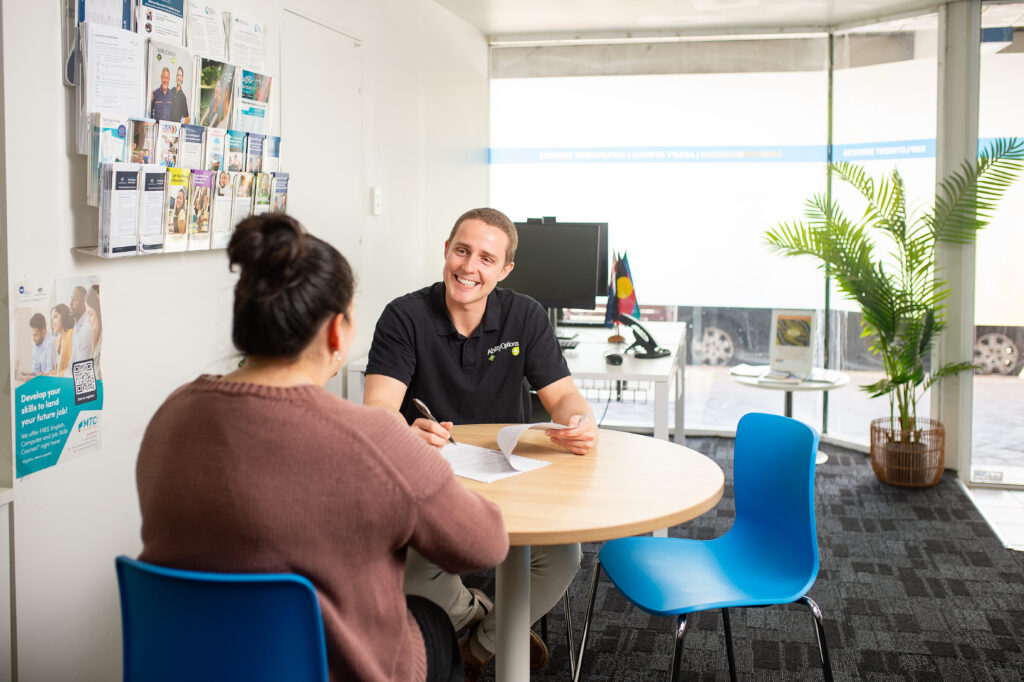The NDIS promised choice and control – but making it work can be complex. That’s where Support Coordination comes in. What is it, and why do so many call it a lifeline? We spoke to someone who lives and breathes the system to find out.

When the National Disability Insurance Scheme (NDIS) rolled out a decade ago, it promised people with disability more choice, more control, and a better quality of life.
For many, it has delivered, but making the most of your NDIS plan isn’t always straightforward—especially when you’re juggling services and funding rules on top of life itself.
That’s where Support Coordination steps in, but what is it, really? What does a Support Coordinator actually do—and why do so many participants and their families call it a lifeline?
To find out, we spoke to someone who knows the system inside and out.
Matt, a Manager for Support Coordination with Ability Options on the NSW Central Coast, shared what the role involves, what it’s not, and why it’s more than just connecting people to services.
“I help people with disabilities make the most of their NDIS plans. My job is to connect participants with the right supports and services, explain how everything works, and make sure things run smoothly so they can reach their goals,” Matt says.
“Think of me as a guide who helps navigate the NDIS system and beyond to ensure the person is getting the support they need.”
It starts with listening
Support Coordination is a service funded by the NDIS that helps participants understand their plan and connect with the services they need and choose to live the life they want.
But according to Matt, it all starts with trust.

“I remember I was working with a participant who had been through several coordinators and felt frustrated and unheard,” he says.
“In our first meeting, instead of jumping straight into the NDIS plan, I gave them space to talk—about their life, what had gone wrong before, and what they really wanted.
“I listened without interrupting, took notes, and reflected what I heard. By the end, they said it was the first time someone had listened to them, not just managed their file or treated them like a number on the scheme.
“From that point on, trust started to build, and we were able to work together much more effectively. Just giving them that space made a huge difference to actively engage.”
The role is a mix of problem-solver, coach, navigator, and advocate. One day might be spent helping someone set up occupational therapy sessions; the next might be spent resolving a breakdown in services or helping prepare for a plan reassessment.
“There’s rarely such a thing as a “typical” day in Support Coordination—but that’s part of what makes it rewarding,” Matt says.
“However, a typical day would mostly be spent talking with participants, coordinating with service providers, reviewing NDIS plans, making sure funding goes where it needs to go; that type of thing.
“I would say that being an effective Support Coordinator is reflected in your ability to be a good problem solver.”
Cutting through the red tape
The NDIS can be overwhelming—even for seasoned participants and their circles of support. Navigating the NDIS is often a full-time job for participants and also families, on top of their day jobs and on top of supporting their family member who relies on the NDIS. Support Coordinators often step in when people feel lost, frustrated, or unsure how to get what they need from their funding.

A good Support Coordinator reads between the lines—both in the plan and in conversation. That includes explaining what funding can be used for, what a participant is entitled to ask for, and helping them take action when things aren’t working.
“One of the most common things participants struggle with is understanding their NDIS plan and how to use the funding. The language can be confusing, and it’s not always clear what’s covered, what’s flexible, or how to find good service providers,” Matt says.
“Many people also don’t know they have choice and control—that they can change providers or ask for a reassessment if something isn’t working. Participants often compare themselves to others on the scheme and can feel hard done by if other participants have more funding.

“Consistent effort is made to ensure the participants’ NDIS plan is well suited to each individuals needs and to help them get the outcomes they want despite the inconsistency in decisions that can come from the agency.”
Matt – Support Coordinator
It’s often overwhelming at first, and that’s where Support Coordination makes a big difference—breaking things down, explaining options, and helping people build confidence to manage their own plan over time.
Real impact, real lives
The impact of Support Coordination can be life changing. Matt recalls working closely with a participant after she had suffered a stroke at 45 years of age.
Matt says the participant had limited informal supports in her network after being discharged into an aged care facility, but adds that her journey wasn’t without its challenges.
“At first, the goal was just to connect them with therapy services and social supports,” he says.
“This participant initially did not wish to explore alternative accommodation after what they had been through and had accepted that she would remain in Aged Care for the rest of her life.”
After more regular visits and building a positive rapport with the participant, Matt says she became more open to exploring what else the NDIS could offer in terms of accommodation models.
“I worked closely with their support network, advocated for a housing review, gathered reports, and helped apply for Supported Independent Living (SIL),” he says.
“Months later, she moved into a much more appropriate home with tailored supports. The change in her wellbeing, mood, and overall outset on life was huge.
“What started as a simple referral ended up completely transforming her quality of life.”
Stories like this are not the exception—they’re what Support Coordinators aim for every day.
What it’s not
There’s often confusion about what Support Coordination does not cover.
Support Coordinators don’t:
- Make decisions for participants,
- Handle rostering,
- Provide out of hours case management,
- Handle finances or budgeting (that’s Plan Management), or
- Provide direct personal care.
Their role is about building capacity—so participants can eventually take the lead, if and when they choose.
“I think the important thing when there are misconceptions about the NDIS and Support Coordination is not to downplay people’s experiences,” Matt says.
“The NDIS can be confusing, slow, or feel unfair at times. It’s important to hear people’s experiences and frustrations, acknowledge their validity, and once they feel heard, help them focus on what we can do next.”

Ability Options Support Coordination
A system still evolving
Despite the positive stories, Support Coordination isn’t perfect. Not every participant has it included in their plan, and not every Support Coordinator is a good fit.
But as the NDIS continues to evolve, the demand for skilled, empathetic Support Coordinators is only growing.
“It’s tough to look away from the constant media coverage around the National Disability Insurance Agency’s Price Guide freeze and the financial viability of the program for all providers,” Matt says.

“Ensuring organisations providing quality Support Coordination can appropriately safeguard participants and cover costs make us all feel a bit of unease and uncertainty of how long we can continue to operate in this climate.
“Speaking of safeguards, I’m supportive of the upcoming mandatory registration for all Support Coordination providers. I know many independent support coordinators who do a fantastic job for their participants. It is a shame the NDIS tends to highlight only those who are not doing the right thing, and I think this compliance piece will ensure consistency across support coordination provision.”
Final thoughts
Support Coordination may not always get the spotlight—but for thousands of Australians, it’s the bridge between a confusing system and a life that actually feels supported.
As Matthew puts it:
“Patience is key, be ready and open to change.”



